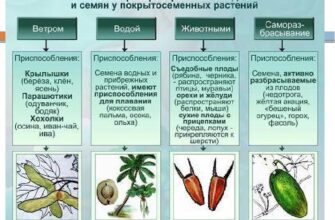- Тест Способы выражения Будущего времени в английском языке тест по английскому языку (6, 7 класс) на тему
- Скачать:
- Предварительный просмотр:
- По теме: методические разработки, презентации и конспекты
- Упражнения «Времена группы Future» (с ответами)
- Ответы:
- Тест с ответами для 9-11 классов по теме «Будущее время»
- тест «формы выражения будущего » тест по английскому языку (9 класс)
- Скачать:
- Предварительный просмотр:
- По теме: методические разработки, презентации и конспекты
Тест Способы выражения Будущего времени в английском языке
тест по английскому языку (6, 7 класс) на тему
Тест Способы выражения Будущего времени в английском языке подготовлен по учебнику Starlight, 6 класс В. Эванс, Д. Дули, К. Баранова, В. Копылова
Скачать:
| Вложение | Размер |
|---|---|
| test_sposoby_vyrazheniya_budushchego_vremeni_v_angliyskom_yazyke.docx | 14.93 КБ |
Предварительный просмотр:
Тест: «Способы выражения Будущего времени в английском языке»
Fill in the gaps with
be going to, will, the present simple form or the present continuous form
of the verbs in brackets.
- Do you need a taxi? The doorman …………………. (call) one for you.
- If you come to my country, you …………….. (like) it.
- Boris is buying a ski jacket. He . (go) on a skiing holiday.
- I think I ……………….…… (visit) Africa one day.
- If the weather gets worse, we ……………….. (not/go) to the beach.
- My parents ………………… (travel) to Spain tomorrow. Here are their tickets.
- They …………………… (take) a boat trip later today.
- She’s wearing her swimsuit. She …………………………. (swim) in the sea.
- Unless she …………………… (call) we won’t leave.
- We’ll go to the park if it ………………………. (not/rain).
- will call (on-the-spot decision)
- will like (type 1)
- is going to go (prediction hosed on what we see)
- will visit (prediction based on what we think)
- won’t go (type 1)
- are travelling (fixed arrangement in the near future)
- are taking (fixed arrangement in the near future)
- is going to swim (prediction based on what we see)
- calls (type 1)
- doesn’t ‘t rain (type 1)
По теме: методические разработки, презентации и конспекты
7 способов передачи будущего времени в английском языке (Презентация)
7 способов передачи будущего времени в английском языке (Презентация).
Учебно-методическая разработка по теме «Наиболее употребительные способы выражения будущего времени в английском языке»
Данная разработка предназначена для учащихся 6-11 классов. К ней прилагаются упражнения для закрепления материала.
Способы выражения будущего времени в английском языке
Способы выражения будущего времени в английском языке
Основные отличия will\ to be going to\ Present Continuous\ Present Simple.
Контрольная работа по теме «Способы выражения будущего времени» 9кл, английский язык
Материал предназначен для обучающихся по УМК «Spotlight 9".
Способы выражения будущего времени в английском языке
Раздаточный материал на тему «Способы выражения будущего времени в английском языке".
Основные Способы выражения будущего времени в английском языке
Основные Способы выражения будущего времени в английском языке.
Источник
Упражнения «Времена группы Future» (с ответами)
1. Преобразуйте следующие утвердительные предложения в отрицательные. Переведите получившиеся предложения.
- We’ll have packed our luggage by the time the taxi comes.
- The government will close the old jail.
- My son will be meeting me at the airport at 8 on Tuesday.
- I’ll go roller-skating next weekend.
- Bob will have left India by this time tomorrow.
- By 2050 they’ll have been living in the country for forty years.
- The baby will be sleeping at 9 tonight.
- They’ll have been working for this company for 10 years next September.
2. Выберите верный вариант глагола и переведите предложения.
- By the time Teddy comes home Pamela … (will eat/will have eaten/will be eating) all the apple jam.
- It’s still not clear if the weather … (will change/will have changed/changes) for the better.
- When Sandra enters a Design College she … (will study/will be studying/will have been studying) Drawing for 5 years there.
- We … (will travel/will have travelled/will have been travelling) to lake Baikal in 2 months.
- She … (will be playing/will have played/will have been playing) tennis tomorrow afternoon.
- My dear granny … (will become/will be becoming/will have become) a pensioner by 2018.
- When you come to the station I … (will wait/will be waiting/will have waited) for you by the central entrance.
- By the time he returns, we … (will starve/will have starved/will have been starving) here for 3 days!
3. Поставьте глагол в форму Future Simple, Future Continuous, Future Perfect или Future Perfect Continuous.
- I … in Brazil at this time next year.
- Dad … in the garden next Sunday.
- By next Monday she … here for one month already.
- In May our Russian teacher … at our school for 30 years!
- He … the report by that time.
- We … the letters when you come.
- Pearson … the contract tomorrow.
- Ann … this book for two weeks the day after tomorrow.
Ответы:
- We won’t have packed our luggage by the time the taxi comes. (Мы не упакуем наш багаж ко времени приезда такси.)
- The government won’t close the old jail. (Правительство не закроет старую тюрьму.)
- My son won’t be meeting me at the airport at 8 on Tuesday. (Мой сын не будет встречать меня в аэропорту в 8 часов во вторник.)
- I won’t go roller-skating next weekend. (Я не пойду кататься на роликах в следующие выходные.)
- Bob won’t have left India by this time tomorrow. (Боб не уедет из Индии к этому времени завтра.)
- By 2050 they won’t have been living in the country for forty years. (К 2050 году они не будут жить в стране в течение 40 лет.)
- The baby won’t be sleeping at 9 tonight. (Малыш не будет спать сегодня в девять вечера.)
- They won’t have been working for this company for 10 years next September. (Они не будут работать в этой компании в течение 10 лет в следующем сентябре.)
- will have eaten (К моменту прихода Тедди домой Памела съест весь яблочный джем.)
- will change (Все еще неясно, изменится ли погода к лучшему.)
- will have been studying (Когда Сандра поступит в дизайнерский колледж, она будет изучать рисование в течение пяти лет.)
- will travel (Мы отправимся в путешествие к озеру Байкал через 2 месяца.)
- will be playing (Она будет играть в теннис завтра днем.)
- will have become (Моя дорогая бабуля выйдет на пенсию к 2018 году.)
- will be waiting (Когда ты придешь на вокзал, я буду ждать тебя у центрального входа.)
- will have been starving (К тому времени, когда он вернется, мы будем изнемогать от голода 3 дня!)
- will be working (Я буду работать в Бразилии в это время в следующем году.)
- will work (Папа будет работать в саду в следующее воскресенье.)
- will have worked (К следующему понедельнику она будет работать здесь уже месяц.)
- will have been working (В мае наш учитель русского языка проработает в школе 30 лет!)
- will have read (К тому времени он прочитает доклад.)
- will be reading (Мы будем читать письма, когда ты придешь.)
- will read (Мистер Пирсон прочитает контракт завтра.)
- will have been reading (Анна будет читать эту книгу в течение двух недель послезавтра.)
Источник
Тест с ответами для 9-11 классов по теме «Будущее время»
Test (Future tenses)
Correct the mistakes
1. At 2 o’clock tomorrow I will sunbathe. ____________________________________________________
2. Where do you spend your winter holidays this year? __________________________________________
3. Stop that noise! I’m going to call the police. __________________________________________________
4. She will type this letter as soon as she will come to the office. ____________________________________
5. Shall you open the door, please? ___________________________________________________________
6. By the end of this year I will be teaching for 21 years. ___________________________________________
7. Her plane is leaving at 4.30.today. __________________________________________________________
8. Perhaps they have visited us tomorrow. ______________________________________________________
Put the verbs into the correct future tense
1. My Grandpa is very old. He __________________________________ (be) 90 next year.
2. She hopes she _________________________________________________________ (pass) her exams.
3. The lesson ___________________________________________________ (start) by the time I get to school.
4. By next week they ________________________________________________ (work) together for 10 years.
5. This time next week we __________________________________________________ (write) another test.
6. When we ___________________________________ (go) to Paris, we’ll climb the Eiffel Tower.
7. They hope they _____________________________________________ _______________(travel) all over the world by the time they are 40.
8. “We’ve eaten everything!” – “Really? I ___________________________________ (go) shopping then.”
9. Look at those clouds! It ______________________________________ (rain) very soon.
10. I _______________________________________ (have) a party at Ben’s tomorrow at 20.00.
11. By the end of this year she _____________________________________________________ (live) in
St. Petersburg for 5 years.
12. “What ____________________________________________ (you/ do) later?” – “Nothing special. Why?”
KEYS for Test (Future tenses)
Correct the mistakes
1. At 2 o’clock tomorrow I will sunbathe.
At 2 o’clock tomorrow I will be sunbathing.
2. Where do you spend your winter holidays this year? Where are you spending your winter holidays this year? / Where are you going to spend your winter holidays this year?
3. Stop that noise! I’m going to call the police. Stop that noise! I will call the police.
4. She will type this letter as soon as she will come to the office. She will type this letter as soon as she comes/ has come to the office.
5. Shall you open the door, please? Will you open the door, please?
6. By the end of this year I will be teaching for 21 years. By the end of this year I will have been teaching for 21 years.
7. Her plane is leaving at 4.30.today. Her plane leaves at 4.30.today.
8. Perhaps they have visited us tomorrow. Perhaps they will visit us tomorrow.
Put the verbs into the correct future tense
9. My Grandpa is very old. He __ will be ____ (be) 90 next year.
10. She hopes she ____ will pass _____ (pass) her exams.
11. The lesson ____ will have started ___ (start) by the time I get to school.
12. By next week they ______ will have been working _____ (work) together for 10 years.
13. This time next week we _____ will be writing ____ (write) another test.
14. When we ____ go ____ (go) to Paris, we’ll climb the Eiffel Tower.
15. They hope they _____ will have travelled _____ (travel) all over the world by the time they are 40.
16. “We’ve eaten everything!” – “Really? I ___ will go __ (go) shopping then.”
17. Look at those black clouds! It ___ is going to rain _____ (rain) very soon.
18. I ___ am having ____ (have) a party at Ben’s tomorrow at 20.00.
19. By the end of this year she _______ will have been living ________ (live) in
St. Petersburg for 5 years.
20. “What ___ will you be doing _______ (you/ do) later?” – “Nothing special. Why?”
Если Вы считаете, что материал нарушает авторские права либо по каким-то другим причинам должен быть удален с сайта, Вы можете оставить жалобу на материал.
Источник
тест «формы выражения будущего »
тест по английскому языку (9 класс)
тест «формы выражения будущего «
Скачать:
| Вложение | Размер |
|---|---|
| 12_vyrazh_budushch.docx | 17.46 КБ |
Предварительный просмотр:
Будущее время в английском языке
1. You don’t have to wait for me, I’ll come home late. I . out with my friend.
2. I think I . this piece of cake. It looks delicious! will take
3. I . a famous rock star one day! am going to become
4. I’m afraid we . on time for the meeting. will not be
5. I am such a spendthrift, so by the end of the week I . all of my pocket money. will have spent
6. Now that I’ve won the lottery, I . a new flat. am going to buy
7. Look at the clouds! It . rain! is going to
8. By the end of the next month, she . for twenty years.
will have been teaching
9. The temperature . 20 °C tomorrow. will reach
10. I can’t make head or tail of this exercise! . you . me? Will / help
11. By the time they reach Edinburgh, they . for 6 hours.
will have been travelling
12. You don’t have to call Cindy. I . her later, so I’ll pass the message on.
13. Excuse me, . you . the fax-machine for long? will / be using
14. Everybody . by the time you come to the party. will have gone
15. She . the report until 5 o’clock. will not have completed
16. Don’t call her now – she . . will be sleeping
17. It’s 8 o’clock. Jim . the office by the time we get there.
18. I . to Rome tomorrow morning. Here is my ticket.
19. Look at the timetable. The bus. in London at 6:40.
20. She . the report by tomorrow. will have finished
Будущее время в английском языке
1. You don’t have to wait for me, I’ll come home late. I . out with my friend.
2. I think I . this piece of cake. It looks delicious! take
3. I . a famous rock star one day! become
4. I’m afraid we . on time for the meeting. not be
5. I am such a spendthrift, so by the end of the week I . all of my pocket money. spend
6. Now that I’ve won the lottery, I . a new flat. buy
7. Look at the clouds! It . rain
8. By the end of the next month, she . for twenty years. teach
9. The temperature . 20 °C tomorrow. reach
10. I can’t make head or tail of this exercise! . you . me? Help
11. By the time they reach Edinburgh, they . for 6 hours. Travel
12. You don’t have to call Cindy. I . her later, so I’ll pass the message on. see
13. Excuse me, . you . the fax-machine for long? use
14. Everybody . by the time you come to the party. Go
15. She . the report until 5 o’clock. not complete
16. Don’t call her now – she . . sleep
17. It’s 8 o’clock. Jim . the office by the time we get there. leave
18. I . to Rome tomorrow morning. Here is my ticket. Fly
19. Look at the timetable. The bus. in London at 6:40. Arrive
20. She . the report by tomorrow. finish
По теме: методические разработки, презентации и конспекты
Теория и упражнения по теме «Cпособы выражения будущего»
Для подготовки к к/р, экзамену, независимому тестированию.
7 класс. Способы выражения будущего времени
В работе представлен тестовый материал по теме «Способы выражения будущего времени в английском языке», в том числе диалоги и переводы предложений с русского языка.
Учебно-методическая разработка по теме «Наиболее употребительные способы выражения будущего времени в английском языке»
Данная разработка предназначена для учащихся 6-11 классов. К ней прилагаются упражнения для закрепления материала.
Способы выражения будущего времени (теория и практика)
Материал направлен на изучение правила «Способы выражения будущего времени». После теории представленно упражнение по этой теме, которое можно использовать в качестве отработки или контроля данного пр.
способы выражения будущего времени
правило на способы выражения будущего времени.
Источник



















